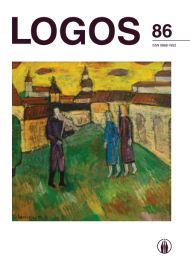Tautų Ateitis Europos Integracijos Perspektyvoje
The Future of Nations in the Perspective of European Integration
Author(s): Vytautas SinicaSubject(s): Political Philosophy, Social Philosophy, Governance, Marxism, EU-Accession / EU-DEvelopment
Published by: Visuomeninė organizacija »LOGOS«
Keywords: European integration; cosmopolitism; europeization; political nation; national state;
Summary/Abstract: The aim of this article is to answer the question, whether the existence of political nations and national states is compatible with ongoing European integration. The study examines the impact of deepening integration on the political nations and national states in Europe. Leaving other criteria aside, projects of European integration are assessed on the basis of their effect on political nations and national states. European integration itself is seen in the perspective of the theoretical and historic dilemma between universalism and particularism. The modern ideologies of cosmopolitism and nationalism are modern forms of this dilemma that has existed since the end of eighteenth century. The project of unified Europe is explained as an attempt to solve the everlasting tension between factual separation of humanity in a self-defined and limited communities and the normative ideal of the unity of mankind. After World War II this attempt took various forms. An unsuccessful Catholic attempt by Christian democratic leaders in 1950s tried to recreate Western Christendom. A Cosmopolitan one became dominant in 1970s and has itself divided into two main trends that are rivals in today`s visions of European integration – „pure cosmopolitanism“ and Neo-Marxism.
Journal: LOGOS - A Journal of Religion, Philosophy, Comparative Cultural Studies and Art
- Issue Year: 2016
- Issue No: 86
- Page Range: 195-203
- Page Count: 9
- Language: Lithuanian

